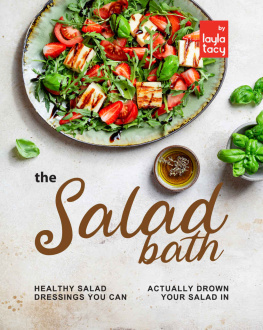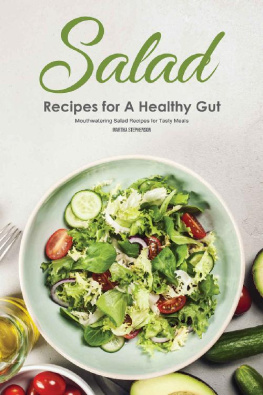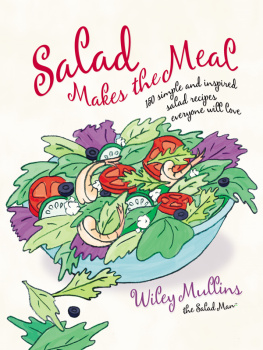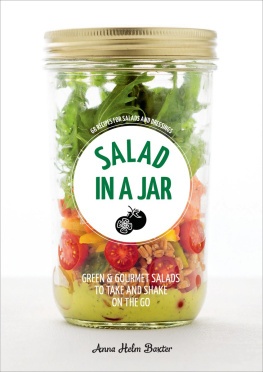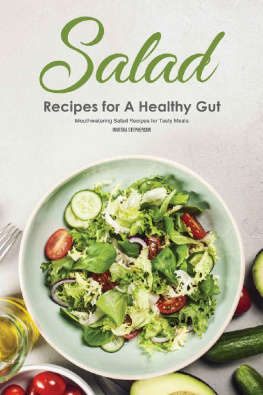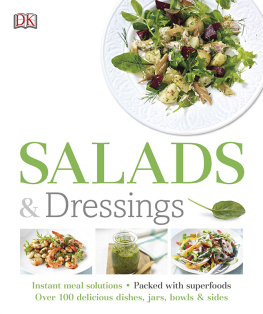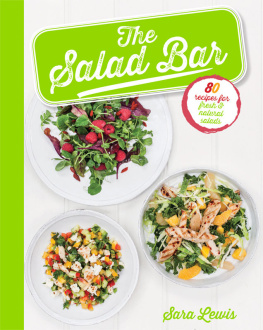Introduction
My mother used to serve us salads with almost every possible meal of the day. Up to this day, I still get her occasional reminders cum sermons Eat your greens! Your salad is there to keep you healthy! Unfortunately, the way we had our salads is far from what and how they are prepared nowadays. We grew up with platter after platter of torn up lettuce, sliced tomatoes, onions dressed in mayo or her homemade thousand island dressing (by homemade, I mean, ketchup, mayo, sugar, salt and pepper) topped with croutons! While this may sound real appealing at first, but after consuming this on almost a daily basis, my sisters and I started to dread meal times thus the reason why I have developed a dislike for salads. But, of course, the past is past, and the present offers brighter and better things in food!
With all the healthy benefits that salads offer and the new and versatile recipes that we can all follow and make, I am a bona fide salad lover! I have traveled all over the country in search for amazing salad recipes that could not only turn anyone into a salad fan but could also solidify that bond a salad lover has with this dish.
If you are interested to give your boring salads a makeover, or add more color to your already great tasting creations, then this book is definitely for you. Amazing Salad Recipes: 35 Salad Meals for Salad Lovers to Try Daily aims to provide you with the following:
- Transform your salads from being boring side dishes into tasty meals that are perfect you and your family.
- Learn about the health benefits of salad consumption on a daily basis.
- Find out the different types of salads, the best ingredients and dressings
- 35 amazingly easy and really delicious salad recipes for salad lovers and converts alike.
With all these and more, this book will surely entice your imagination, quench your thirst for information and satisfy your hunger for great tasting salads!
I hope that you enjoy reading this book as much as I, with the help of my team, had a blast writing it!
Copyright 2015 Fog Bay Publishing - All rights reserved
This document is geared towards providing exact and reliable information in regards to the topic and issue covered. The publication is sold with the idea that the publisher is not required to render accounting, officially permitted, or otherwise, qualified services. If advice is necessary, legal or professional, a practiced individual in the profession should be ordered.
From a Declaration of Principles which was accepted and approved equally by a Committee of the American Bar Association and a Committee of Publishers and Associations.
In no way is it legal to reproduce, duplicate, or transmit any part of this document in either electronic means or in printed format. Recording of this publication is strictly prohibited and any storage of this document is not allowed unless with written permission from the publisher. All rights reserved.
The information provided herein is stated to be truthful and consistent, in that any liability, in terms of inattention or otherwise, by any usage or abuse of any policies, processes, or directions contained within is the solitary and utter responsibility of the recipient reader. Under no circumstances will any legal responsibility or blame be held against the publisher for any reparation, damages, or monetary loss due to the information herein, either directly or indirectly.
Respective authors own all copyrights not held by the publisher.
The information herein is offered for informational purposes solely, and is universal as so. The presentation of the information is without contract or any type of guarantee assurance.
The trademarks that are used are without any consent, and the publication of the trademark is without permission or backing by the trademark owner. All trademarks and brands within this book are for clarifying purposes only and are the owned by the owners themselves, not affiliated with this document.
Chapter 1: Salad Facts: History and Other Information
It has been known that the Greeks and the Romans tossed the very first salads; but these ancient salad lovers did not refer to this marriage of greens, fruits, oil and other spices in the same way we do today. In fact, it has gone unnamed for so many years; even the Roman historian Pliny the Elder referred to salads as products from the garden that require no cooking and are ready to eat.
What Is a Salad?
Defining salad does not need thorough research and spending sleepless nights in front of your computer nor do you need to make several trips to the library just to get your facts straight. And while many people have been walking on the earth believing that salads are just a bunch of tossed up lettuce, oil, salt, and pepper, there is actually more to a salad than what one might actually think.
A salad is a type of dish that is composed of different types of food including a variety of fruits, vegetables, cheese, cooked, cured or even raw meat, grains, and eggs. These small pieces of foodstuff are put together by means of adding different types of sauces or dressings.
Salads vary depending on where you come from. Some acquire ingredients that are found or harvested locally while others source their ingredients internationally. The abundance of fresh produce, meat, and other food products are also the reason behind the increase in the number of salad variations or types.
Salad Etymology
The word salad is derived from the French term salade , which shares the same meaning of the Latin word salata. The English word salad or sallet was first used in the fourteenth century.
These words all refer to one thing, and that is salt. This aromatic and flavor enhancer is associated with salads since the ingredients used are usually flavored with salt, oil, vinegar or any briny liquid solution.
The History of Salad
It has already been mentioned that the consumption of salads goes way back during the ancient Roman and the Greek periods. They eat mixed green leafy vegetables with some sort of briny dressing. Salads, soon after, became popular in places that these two empires conquered. And their taste for the greens have evolved and became more versatile.
While salads boomed all across Europe in the 14 th , all the way to the 18 th century, it wasnt only until the 19 th century when the United States has finally caught up with the salad craze.
The 20 th century showed a boost in salad popularity all because packaged salads or greens were made available in supermarkets all over the world. From North America to Australia, China, Japan and the rest of Asia, people can now sample different types of salads and dressings with ease.
Chapter 2: Different Types of Salads and Dressings
Gone are the days when you can only find a few salad options on the menu at restaurants, supermarkets, and groceries. You can also say goodbye to munching on bland greens and homemade dressings that do not really pack any punch in terms of appearance and flavor. Why? Well, it is because of how the salad has evolved and traveled all over the world.
People have different flavor and texture preferences in terms of food, and this is how their local produce, herbs and spices influenced the way salads are now made and eaten in different parts of the globe.
Different Types of Salad
There are various types of salads that you can choose from. And these can definitely make sure that will never have a dull salad meal anymore.
Green Salad
This probably one of the most common, if not, the very first type of salad ever eaten. This is because this type of dish is mainly composed of leafy vegetables such different varieties of lettuce, arugula, rocket and spinach. This is also considered as the ultimate diet salad because it is low in calories and fats.



